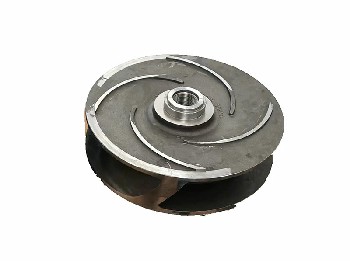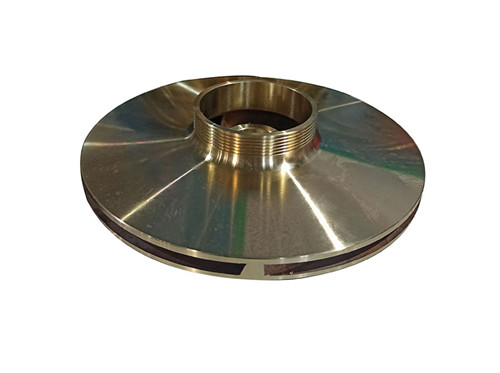Liquid Pump Impellers play a critical role in the functionality and efficiency of various pumping systems across industries. From water treatment plants to chemical processing facilities, these components are indispensable for ensuring smooth fluid flow and optimal performance. In this comprehensive guide, we delve into the intricacies of Liquid Pump Impellers, exploring their design, materials, manufacturing processes, and applications.
Introduction to Liquid Pump Impellers
Liquid Pump Impellers are rotary devices designed to impart energy to fluids by means of centrifugal force. They are typically housed within pump casings and are responsible for converting the mechanical energy from the motor into kinetic energy, thereby propelling the fluid through the system. The design and configuration of the impeller directly impact the pump's efficiency, capacity, and reliability.
Design Considerations for Liquid Pump Impellers
The design of Liquid Pump Impellers is a meticulous process that involves various considerations to optimize performance. Factors such as impeller geometry, blade profile, diameter, and number of blades significantly influence fluid dynamics and efficiency. Engineers meticulously analyze parameters such as flow rate, head, and viscosity to tailor impeller designs for specific applications.

Material Selection for Liquid Pump Impellers
The choice of materials for Liquid Pump Impellers is crucial for ensuring durability, corrosion resistance, and longevity. Gray iron and ductile iron are commonly utilized due to their excellent mechanical properties and cost-effectiveness. Gray iron offers good machinability and damping properties, making it suitable for applications where vibration control is essential. On the other hand, ductile iron provides higher tensile strength and resistance to fracturing, ideal for demanding environments.
Manufacturing Processes for Liquid Pump Impellers
Liquid Pump Impellers are predominantly manufactured using sand casting, a versatile and cost-effective method suitable for producing complex geometries. The sand casting process involves creating a mold cavity in sand, into which molten metal is poured to form the desired shape. This method allows for flexibility in design iterations and enables the production of large-scale impellers with high precision.
Applications of Liquid Pump Impellers
Liquid Pump Impellers find applications across a wide range of industries, including:
Water and wastewater treatment
Chemical processing
Oil and gas
Power generation
HVAC (Heating, Ventilation, and Air Conditioning)
Marine and maritime
In water and wastewater treatment plants, impellers are integral to processes such as filtration, sedimentation, and aeration. In chemical processing industries, impellers facilitate the mixing, agitation, and circulation of various fluids and chemicals. Moreover, impellers play a vital role in enhancing the efficiency of pumps used in oil refining, power generation, and HVAC systems.

Advancements in Liquid Pump Impeller Technology
With advancements in engineering and materials science, Liquid Pump Impeller technology continues to evolve, leading to improved performance and efficiency. Computational Fluid Dynamics (CFD) simulations enable engineers to optimize impeller designs for specific flow conditions, resulting in enhanced energy efficiency and reduced operating costs. Furthermore, advancements in additive manufacturing techniques offer opportunities for producing customized impellers with intricate geometries, further pushing the boundaries of performance and innovation.
Maintenance and Care of Liquid Pump Impellers
Proper maintenance and care are essential for maximizing the lifespan and efficiency of Liquid Pump Impellers. Regular inspection for signs of wear, erosion, or corrosion is imperative to prevent unexpected failures and downtime. Routine maintenance tasks may include cleaning, lubrication, and alignment checks to ensure smooth operation. Additionally, monitoring parameters such as vibration levels, temperature, and pressure can provide valuable insights into the health of the pumping system and help identify potential issues early on.
Conclusion
Liquid Pump Impellers are indispensable components of pumping systems, playing a crucial role in fluid transport across various industries. From their meticulous design and material selection to the intricacies of manufacturing processes, every aspect contributes to their efficiency and performance. As technology continues to advance, Liquid Pump Impellers will undoubtedly undergo further innovations, driving improvements in energy efficiency, reliability, and sustainability across diverse applications.
 English
English
![]()
 English
English
 Russian
Russian
 French
French
 Spanish
Spanish














